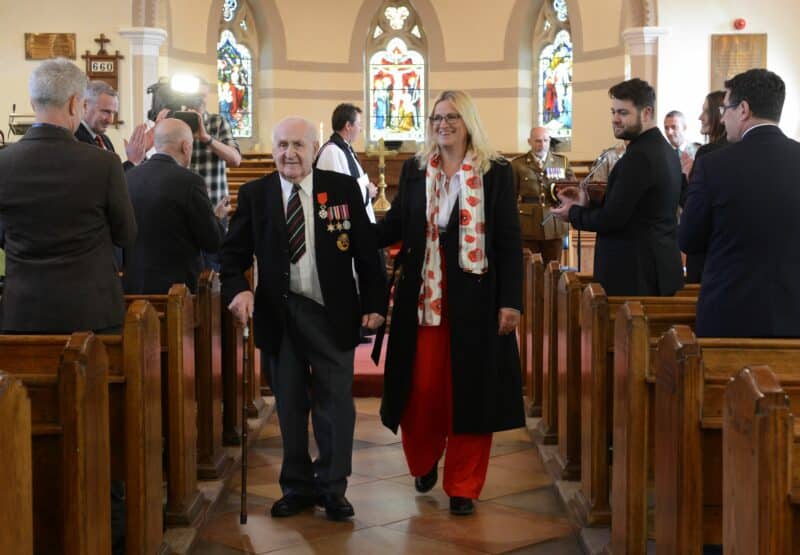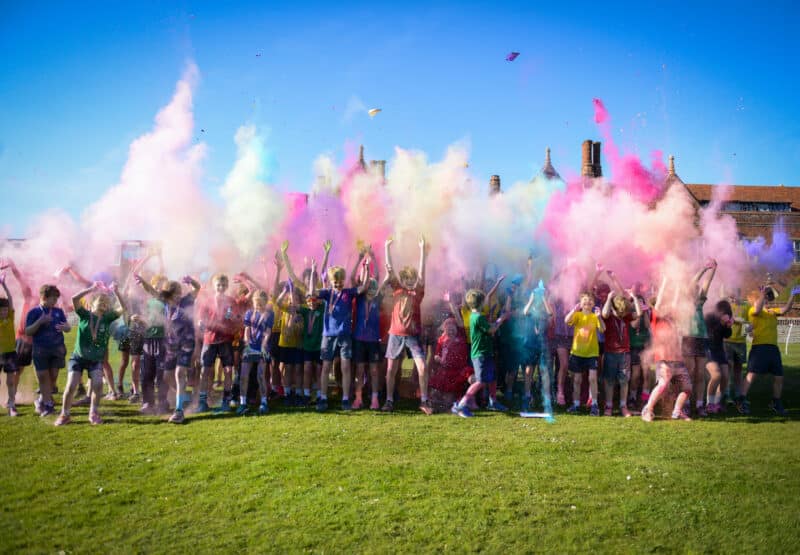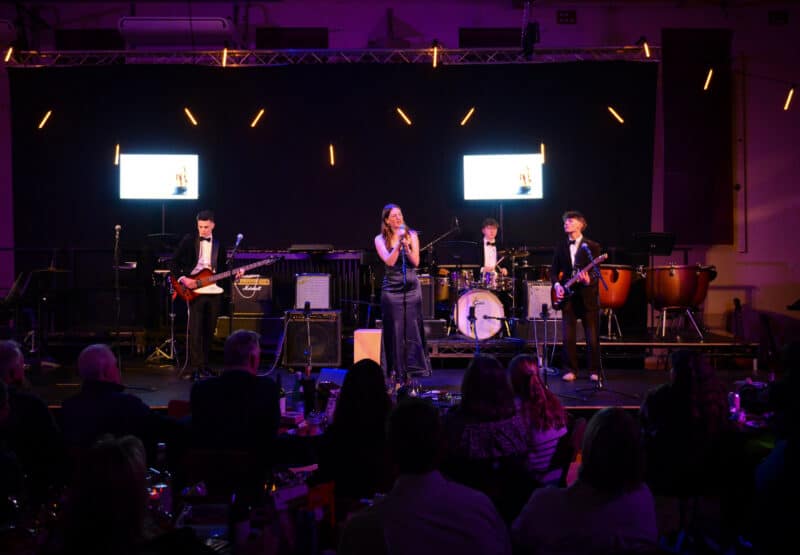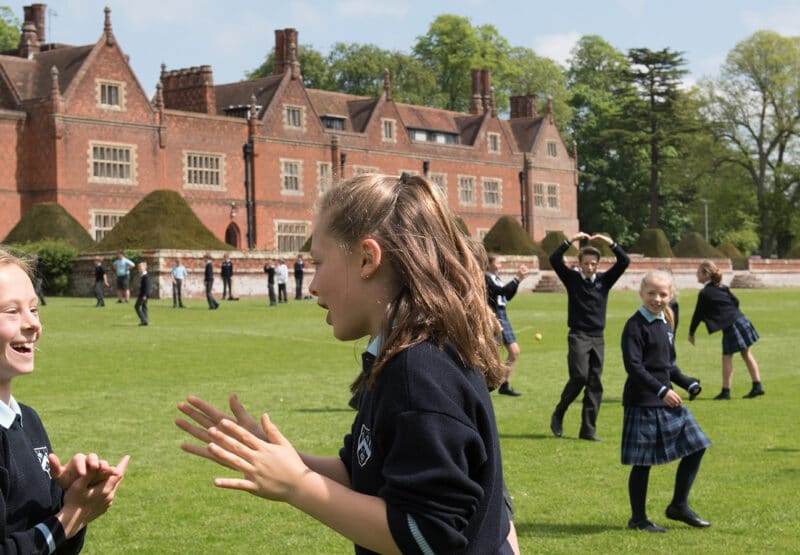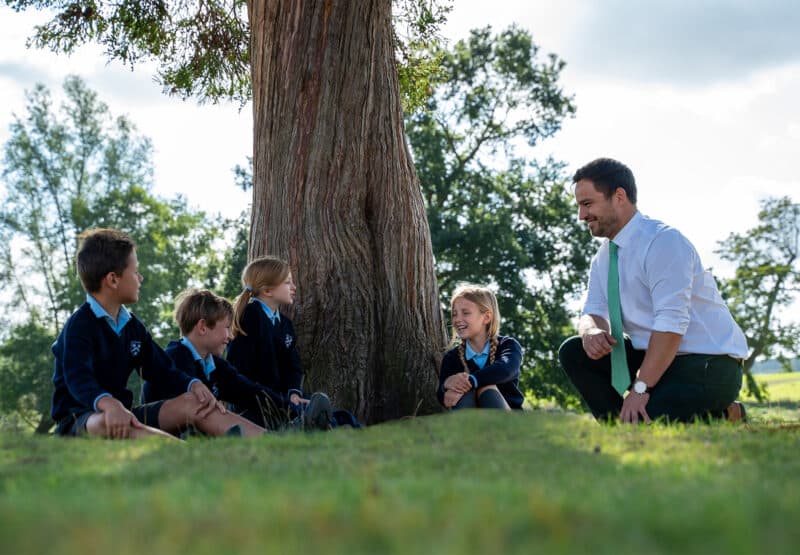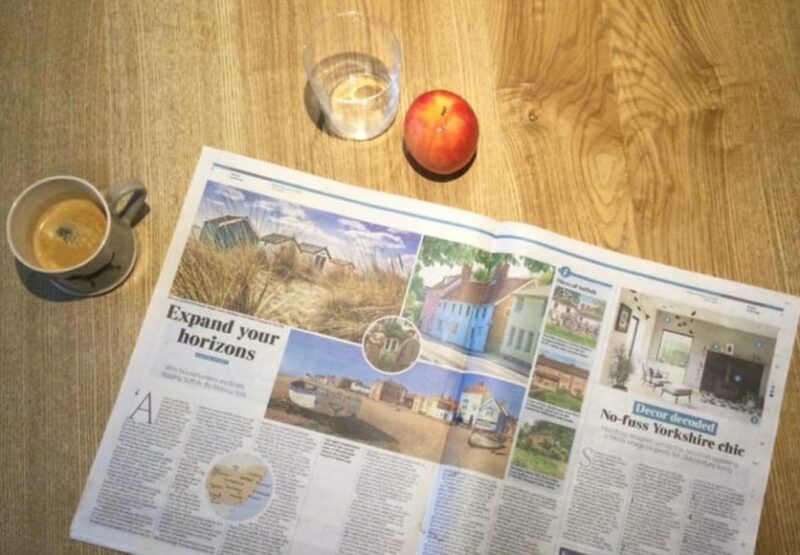Year 12 pupils from Framlingham College travelled to The International School of The Hague to take part in a diplomatic Model United Nations Conference this term.
During the visit, the Sixth Formers took part in three days of intense debate and discussion about a range of interesting and complex topics and issues such as AI, environmental concerns and tensions between Israel and Palestine.
The College were representing the United Arab Emirates and had to spend time with delegates from all over the world, representing all United Nations member states, negotiating, and discussing resolutions.
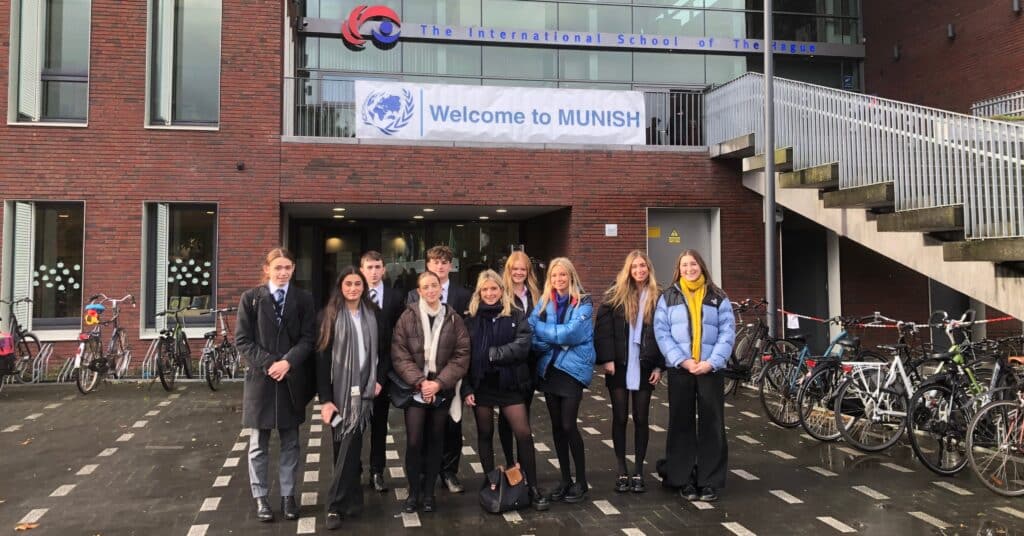
Thomas Sailsbury, Head of Philosophy and Politics, said: “The trip was a fantastic experience for all. The pupils all came away with a greater appreciation for the work of the UN in solving some of the world’s most pressing problems.”
Talking about the future of the MUN in schools, Wayne Rogers, Teacher of Psychology, said: “We are very excited to have recruited more pupils from Year 9 to Year 12 who are all eager to take part in MUN. This is a fantastic opportunity for pupils to build on confidence, improve analytical skills, practise improvisation, take an extensive look at real world problems and create peaceful resolutions.
“We will be looking at running an in-house conference after Christmas and attending further external conferences in the UK and overseas. We hope this club will continue to thrive and offer pupils opportunities they will remember and take forward outside Framlingham College.”
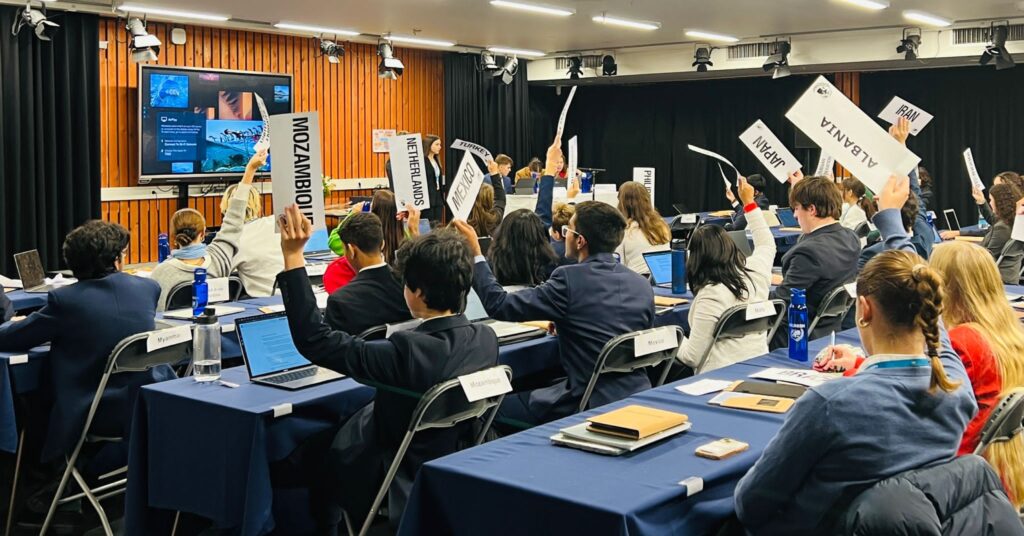
Q&A Pupil Voice
Sixth Former, Evie B, talks about her experience on the trip:
What do you think you have gained as result of taking part?
This opportunity has helped me to develop a diplomatic approach to controversial global issues, such as the Israeli-Palestinian conflict. It also helped me to improve my public speaking and reasoning skills through speeches and lobbying.
What part did you find most challenging?
The hardest part of MUN for me was the research and preparation for it, being able to fully understand your topics in a high level of detail and depth to debate and write a speech and policy statement. Furthermore, as it was everyone’s first MUN conference, we didn’t have the experience to know exactly what was expected of us as delegates, so we had to adapt quickly to the rules and procedures when taking part in the conference.
How has being involved in the MUN helped you?
This has given me the opportunity to develop a range of key skills such as communication, diplomacy, public speaking, leadership and teamwork all in a fun friendly environment.
What did you learn that you didn’t know before?
I learnt more about how the UN works including the processes it follows in order to pass a resolution. I also learnt how to properly write a speech, policy statement and how to effectively lobby with other delegates.
How important is understanding of international affairs and politics?
I think that the understanding of international affairs and politics is indispensable today. It widens your perspective and understanding of significant events that impact so many lives across the world. This is especially important now more than ever, as we are living through unprecedented political and economic events on a national and global scale.
What advice would you have for anyone thinking about taking part?
My advice would be to get involved and take every opportunity in terms of MUN. It is a valuable and fun experience that allows you to meet a wide range of people.

